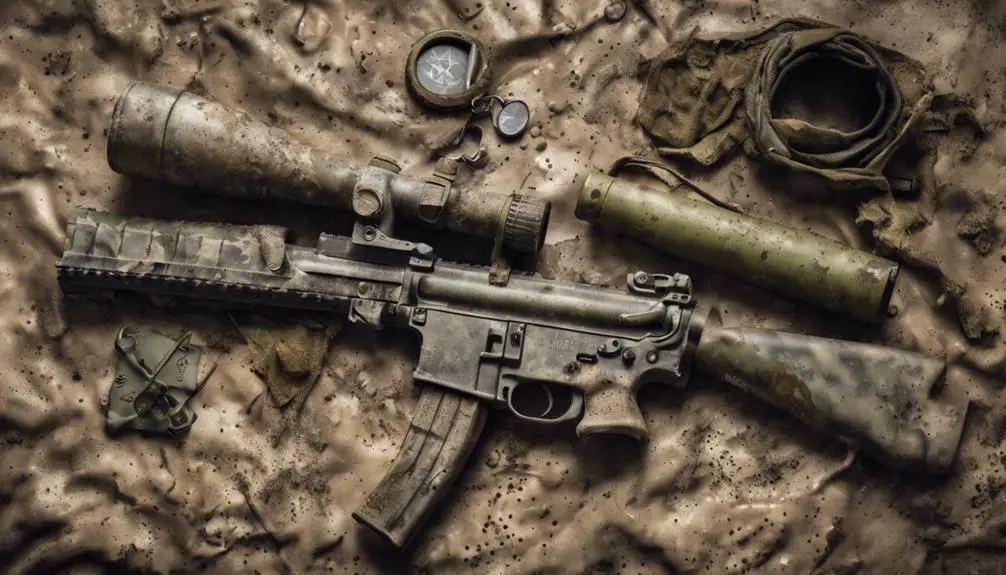You've stumbled upon the term 'clicks' in military slang, but what does it really mean? In military operations, 'clicks' is a shorthand for kilometers, used to efficiently convey combat distances. This term originated from the sound of mechanical counters and has been ingrained in military culture since the Vietnam War era. Clicks provide a concise way to express distances, essential for coordinating air support, artillery fire, and reporting enemy positions. As you explore the world of military slang, you'll discover how clicks are integral to secure communication, and how they've become a preferred choice for military personnel. Dive deeper to uncover the intricacies of military communication.
Origins of Military Slang
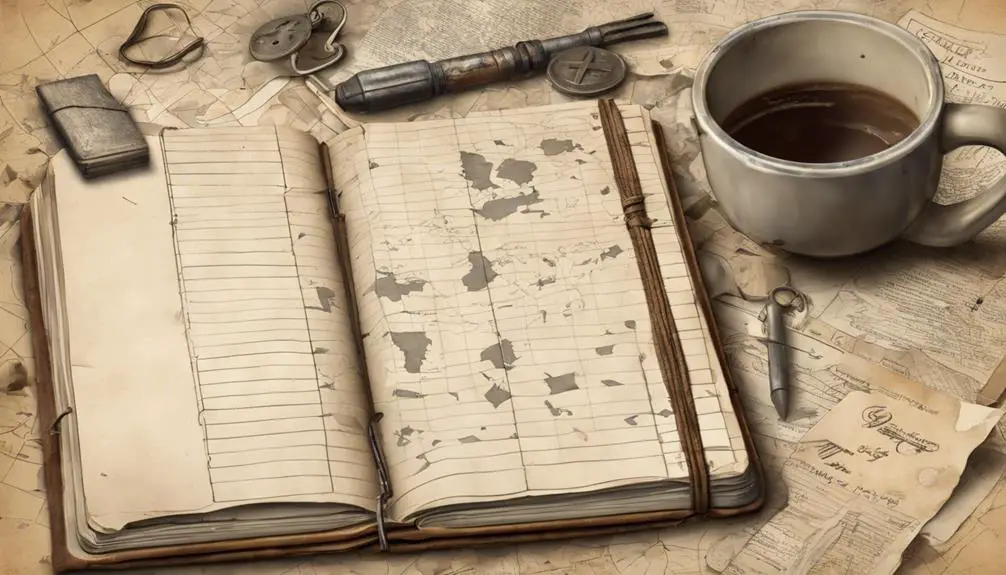
You're about to explore the fascinating world of military slang, and it's crucial to grasp its historical roots. Military slang, a unique aspect of military culture, has its origins in the early days of warfare, with evidence suggesting that soldiers have been using colloquial language to communicate secretly and efficiently on the battlefield since ancient times. This linguistic evolution was driven by the necessity for soldiers to quickly convey complex information in high-pressure situations.
As you investigate the origins of military slang, you'll discover that it has been shaped by various factors, including geographical location, cultural background, and technological advancements.
For example, during World War I, soldiers used slang to maintain secrecy and confuse enemy interceptors. This led to the development of coded language, which became an integral part of military communication.
You'll observe that military slang has undergone significant changes over time, reflecting the dynamic nature of warfare and the adaptation of soldiers to new environments. By examining the historical roots of military slang, you'll gain a deeper understanding of its linguistic evolution and its importance in modern military culture.
Clicks and Kilometers
In the domain of military slang, the terminology used to describe units of distance is particularly fascinating, with 'clicks' and 'kilometers' being two examples of measurements that have become an integral part of military communication. As you explore the world of military slang, you'll notice that these terms are used to convey critical information about combat distances, which are vital in tactical operations.
Here are some key aspects of 'clicks' and 'kilometers' in military slang:
- Measurement Challenges: In combat situations, accurate distance measurements can be a matter of life and death. Military personnel rely on precise calculations to guarantee effective execution of missions.
- Combat Distances: When engaging enemy forces, understanding the distance between units is critical. 'Clicks' (kilometers) and kilometers are used to communicate these distances quickly and efficiently.
- Tactical Significance: The use of 'clicks' and kilometers allows military personnel to coordinate tactics, allocate resources, and adjust strategies in real-time.
Code Words and Phrases
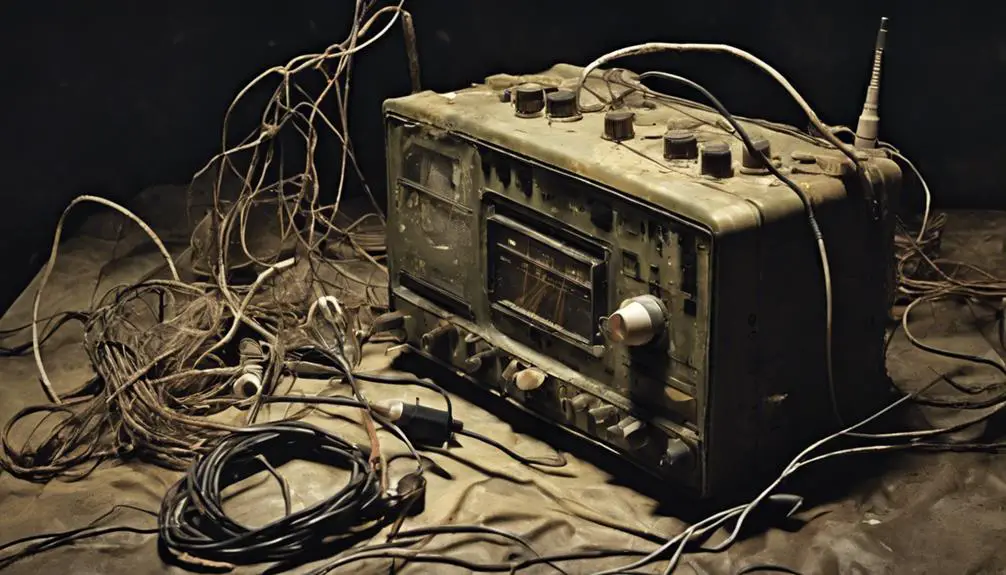
One essential aspect of military communication is the use of code words and phrases, which enable troops to convey sensitive information quickly and securely in high-stress situations. This secure communication method guarantees that critical information is protected from interception or eavesdropping by unauthorized parties. Code words and phrases are carefully crafted to convey complex information in a concise manner, allowing troops to respond rapidly to changing situations.
Here are some examples of code words and phrases used in military communication:
| Code Word/Phrase | Meaning | Purpose |
|---|---|---|
| ' Oscar Mike' | On the move | Indicates troop movement |
| 'Buddy Check' | Casualty report | Reports on injured personnel |
| 'LZ' | Landing Zone | Designates a secure landing area |
These code words and phrases enable covert messaging, allowing troops to convey sensitive information without revealing their intentions to potential adversaries. By using these codes, military personnel can maintain secure communications, guaranteeing the success of their missions.
Squaddie Lingo Explained
As troops rely on code words and phrases to convey sensitive information, they also employ a distinct dialect, known as Squaddie Lingo, to communicate with each other in a more casual, conversational tone. This unique language helps to explore camaraderie and shared understanding among troops, transcending language barriers and fostering a sense of unity. You might find that Squaddie Lingo is constantly evolving, with new slang and phrases emerging to reflect the ever-changing nature of military operations.
Some common features of Squaddie Lingo include:
- Using colloquialisms and abbreviations to convey complex ideas quickly and efficiently
- Creating new words by combining existing words or altering their meanings
- Employing humor and irony to cope with the stresses of military life
As you investigate further into Squaddie Lingo, you'll discover a rich cultural heritage that reflects the unique experiences and challenges of military personnel. By understanding this dialect, you'll gain insight into the social dynamics and cultural norms that shape military life.
Military Jargon Around World
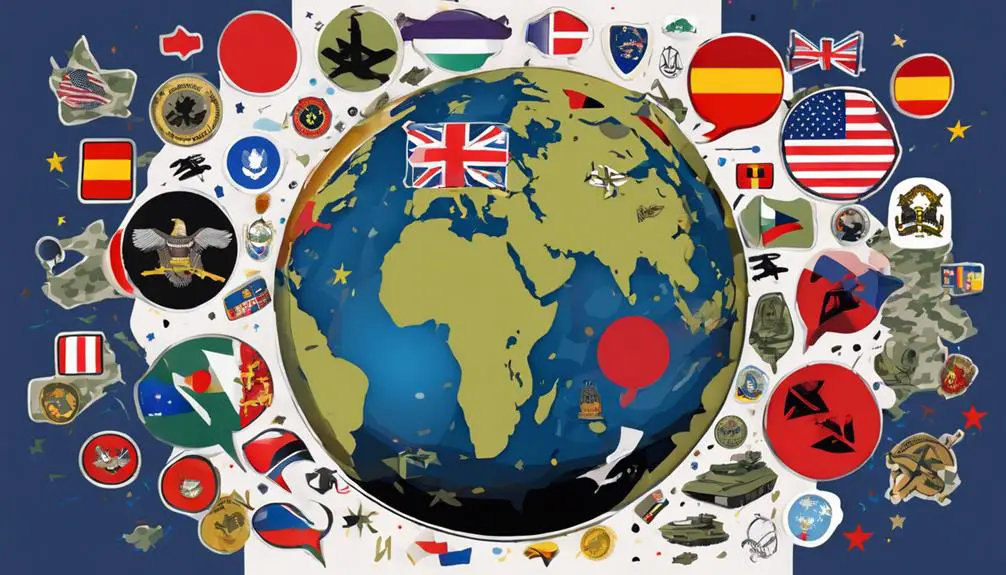
As you explore the world of military slang, you'll discover that global dialects are shaped by a nation's distinct identity, values, and experiences. Cultural nuances play a significant role in shaping military jargon, often incorporating colloquialisms, idioms, and local expressions.
For instance, the Australian military uses terms like 'fair dinkum' (meaning genuine or true) and 'she'll be right' (meaning everything will be okay), which reflect the country's laid-back attitude and colloquial language. In contrast, the British military uses terms like 'squaddie' (soldier) and 'gutted' (extremely disappointed), which reflect the UK's distinct cultural heritage.
As you investigate military jargon around the world, you'll notice that each country's unique cultural identity is embedded in its slang. By understanding these cultural nuances, you'll gain a deeper appreciation for the complexities of global military communication.
Whether it's the French 'poilu' (infantryman) or the American 'grunt' (infantryman), each term offers a glimpse into the cultural fabric of its respective nation.
How Milspeak Evolves Quickly
Military slang adapts swiftly to new circumstances, driven by the fast-paced nature of warfare and the need for secure communication. This adaptability is crucial, allowing military personnel to communicate effectively in high-pressure situations. The rapid emergence of new terminology, reflecting the dynamic nature of modern warfare, is evidence of this phenomenon.
As you explore further into the world of milspeak, you'll observe that:
- New terminology emerges in response to technological advancements, such as the development of drones or cyber warfare.
- Battlefield colloquialisms arise from the need for secure communication in the heat of battle, often relying on cryptic language to convey essential information.
- Adapting lingo is essential for maintaining operational security, as it allows military personnel to stay one step ahead of potential adversaries.
Decoding Military Acronyms
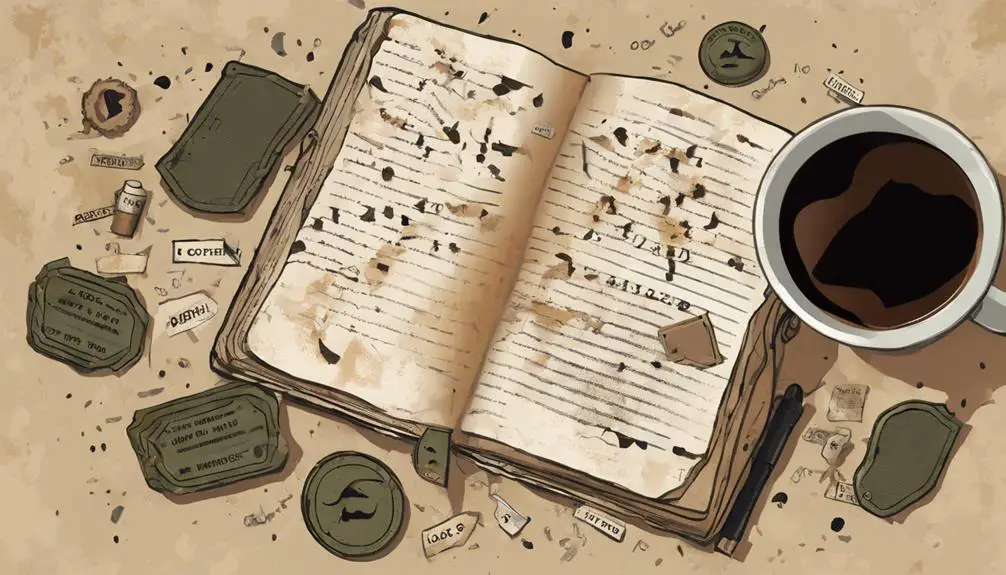
When deciphering military communications, you're likely to encounter a multitude of acronyms that can be confusing to outsiders, but are essential for efficient communication among military personnel. These abbreviations serve as a shorthand, allowing personnel to convey complex information quickly and accurately. However, for those not familiar with military jargon, deciphering these acronyms can be a challenging task.
Acronym ambiguity is a significant challenge in decoding military communications. A single acronym can have multiple meanings, depending on the context in which it's used. For instance, 'SIG' can stand for 'Signal' or 'Special Interest Group,' depending on the situation. This ambiguity can lead to confusion, even for experienced codebreakers.
Codebreaker challenges arise when dealing with the sheer volume of acronyms used in military communications. With thousands of unique abbreviations, it's easy to get lost in the alphabet soup. To overcome this, codebreakers must be familiar with the specific terminology used in each branch of the military, as well as the context in which the acronym is being used.
Frequently Asked Questions
Are Military Slang Words Only Used by Enlisted Personnel?
You might think military slang is exclusive to enlisted personnel, but that's not entirely true.
While it's true that enlisted personnel often use slang to build camaraderie, officers aren't entirely excluded from the practice.
In reality, military slang is used across ranks, with some terms even originating from officer circles.
It's not about rank exclusivity, but rather about cultural familiarity and shared experiences.
Officer inclusion is more common than you think, and it's time to rethink your assumptions about military slang.
Can Civilians Use Military Slang in Casual Conversations?
Think you can't use military slang because you're not in the military? Think again! In reality, you can definitely use military slang in casual conversations.
Cultural relevance plays a significant role here – if a phrase has become an integral part of everyday language, you're likely to get away with using it. Everyday application is key; if it's widely understood, go for it!
Is Military Slang Used More in Combat Zones or in Barracks?
You might wonder, do soldiers use slang more in the heat of combat or during downtime in the barracks?
The answer lies in the purpose of slang. In combat zones, intense situations demand concise communication, making slang an essential tool for quick, efficient exchange. Conversely, in barracks, slang fosters camaraderie and relaxation, reinforcing bonds among soldiers.
You'll find that combat intensity fuels functional slang, while barracks camaraderie encourages more playful, social uses.
Do Military Slang Words Have Different Meanings in Different Countries?
As you explore military slang, you'll find that its meanings can vary greatly across countries. This is due to cross-cultural nuances and language barriers that lead to differing interpretations.
For instance, a term might be innocuous in one country but carry a derogatory connotation in another. Understanding these variations is important for effective communication among international military forces.
Are Military Slang Words Officially Recognized by Military Institutions?
When exploring military slang, you'll find that official recognition varies. While some institutions establish Language Standards, others don't formally acknowledge slang.
You might assume that military slang would have Institutional Approval, but that's not always the case. In reality, slang often emerges organically among troops, without formal recognition.
However, some military branches, like the US Army, have dictionaries or guides that document and standardize slang terms, providing a level of official recognition.
Conclusion
You've cracked the code of military slang, and now you're fluent in the language of the armed forces. Like a seasoned operative, you can decipher cryptic messages and decode acronyms with ease.
As you navigate the world of milspeak, remember that language is a battlefield, and staying ahead of the curve is key to success. Stay vigilant, and keep your ears open for the latest clicks and kilos – after all, in the world of military slang, adaptation is the ultimate survival tactic.

